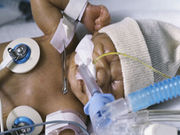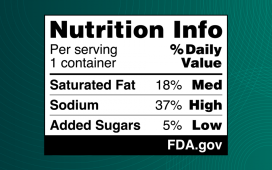Variation across centers in early antibiotic exposures, prolonged antibiotic administration
TUESDAY, May 29, 2018 (HealthDay News) — Most premature infants receive empirical antibiotic therapy, according to a study published online May 25 in JAMA Network Open.
Dustin D. Flannery, D.O., from the Children’s Hospital of Philadelphia, and colleagues examined early antibiotic use among premature infants in a retrospective cohort study using a comprehensive administrative database of inpatient encounters from 297 academic and community U.S. hospitals.
The researchers identified 40,364 very low-birth-weight (VLBW) infants who survived at least one day, including 12,947 extremely low-birth-weight (ELBW) infants. Most premature infants had early antibiotic initiation (78.6 and 87 percent of VLBW and ELBW infants, respectively); in temporal trend analyses, there were no differences over time for VLBW or ELBW infants. Over time, a small but significant decrease was seen in the rate of prolonged antibiotic duration for VLBW infants but not for ELBW infants. Across centers, there was variation in early antibiotic exposures; 61.1 and 84.8 percent of centers started antibiotic therapy for more than 75 percent of VLBW and ELBW infants, respectively. There was also variation across centers in the proportion of VLBW and ELBW infants administered prolonged antibiotics, from 0 to 80.4 percent and from 0 to 92 percent, respectively.
“The variability in exposure rates across centers, however, suggests that neonatal antimicrobial stewardship efforts are warranted to optimize antibiotic use for VLBW and ELBW infants,” the authors write.
Copyright © 2018 HealthDay. All rights reserved.








